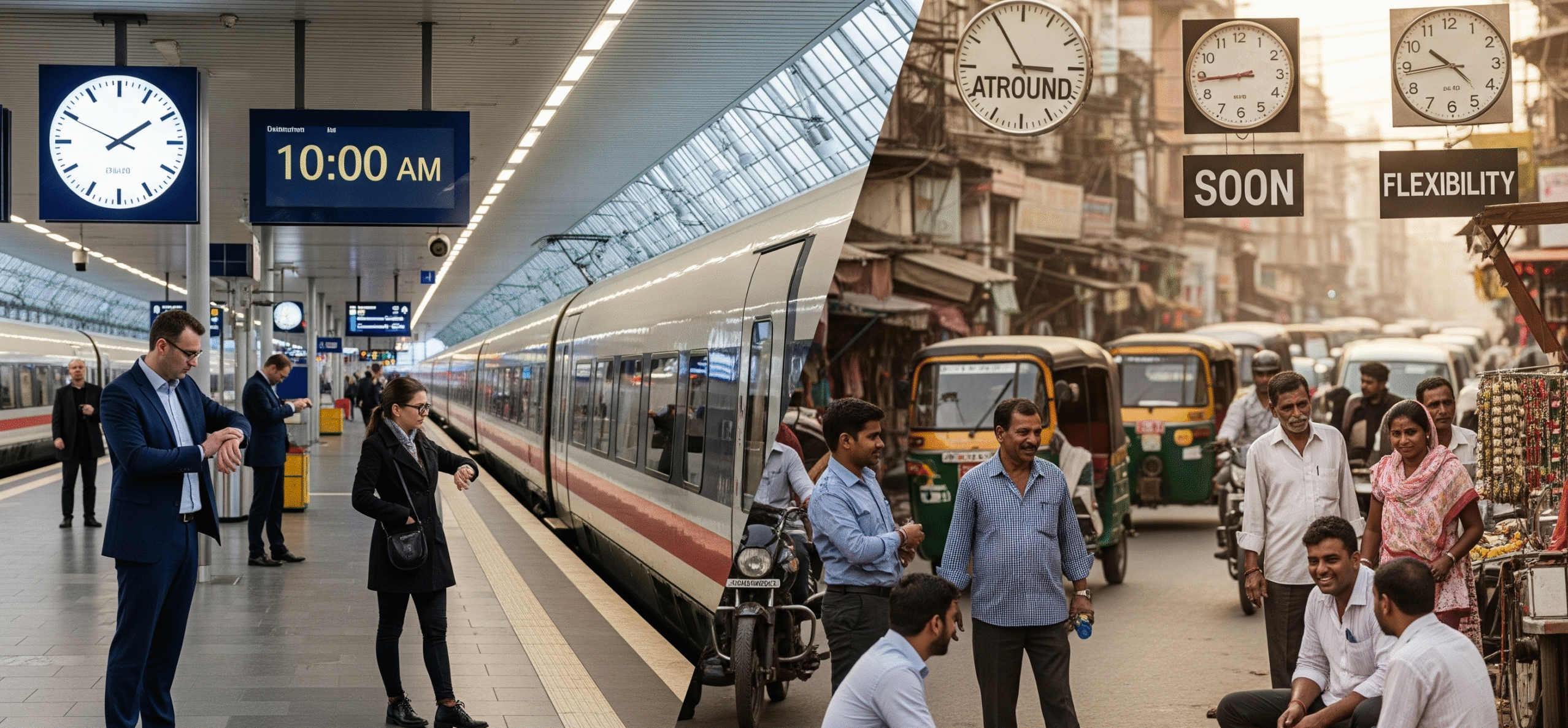On Time or In Time? Punctuality in Two Different Worlds

Time is more than numbers on a clock—it’s cultural. How people treat punctuality says a lot about their values and priorities. In Germany, arriving late can damage trust, while in India, flexibility is often part of the flow of life.
⏰ Germany: Every Minute Counts
Punctuality is seen as professionalism and respect.
Being late—even by 5 minutes—can create a negative impression.
Efficiency and structure are central to German work and social culture.
Appointments, trains, and meetings almost always start on time.
🕰️ India: Time Is Social, Not Just Mechanical
A more flexible view of time—delays are often tolerated.
Social relationships often outweigh strict schedules.
“Indian Standard Time (IST)” is jokingly referred to as “It’s Still Time.”
Traffic, weather, or unexpected guests are common and accepted reasons for being late.
🌍 Why the Difference?
Germany: Industrial efficiency and precision influence everyday life.
India: Community, adaptability, and hospitality often matter more than strict timing.
In short, Germany views time as a resource, India views it as fluid and situational.
🤝 What to Do as a Visitor
In Germany: Arrive 5–10 minutes early to show respect.
In India: Arrive on time, but don’t stress if others are late—it’s normal.
Always stay polite; showing effort matters more than perfect timing.
✅ Why This Matters
Time is not just about schedules—it’s about culture. Understanding how punctuality works in different places helps you avoid misunderstandings and build better connections.
Final Takeaway
In Germany, being punctual signals reliability, while in India, flexibility reflects warmth and adaptability. Neither approach is “better” or “worse”—they’re simply cultural reflections.
If you respect the local attitude toward time, you’ll earn respect in return.